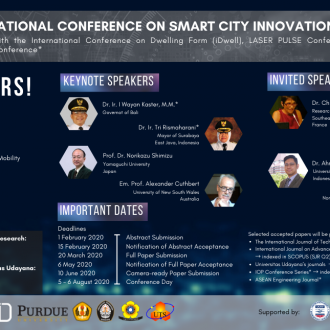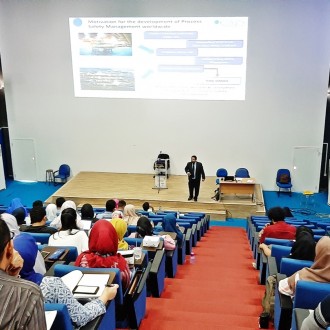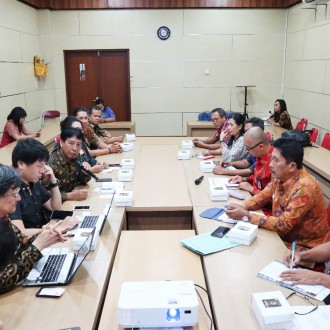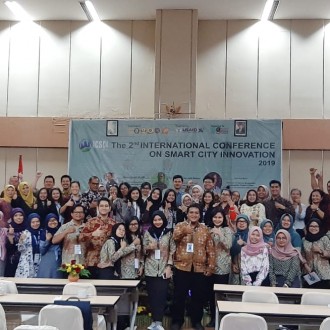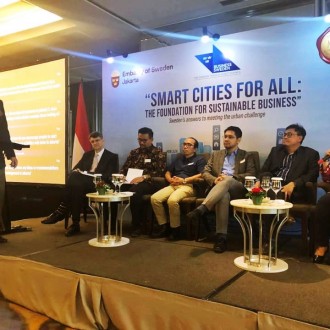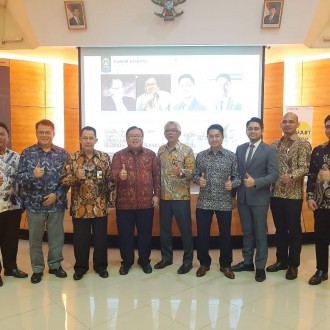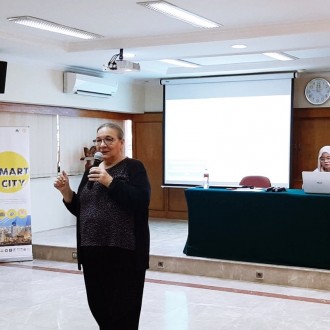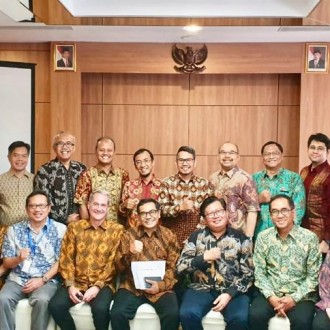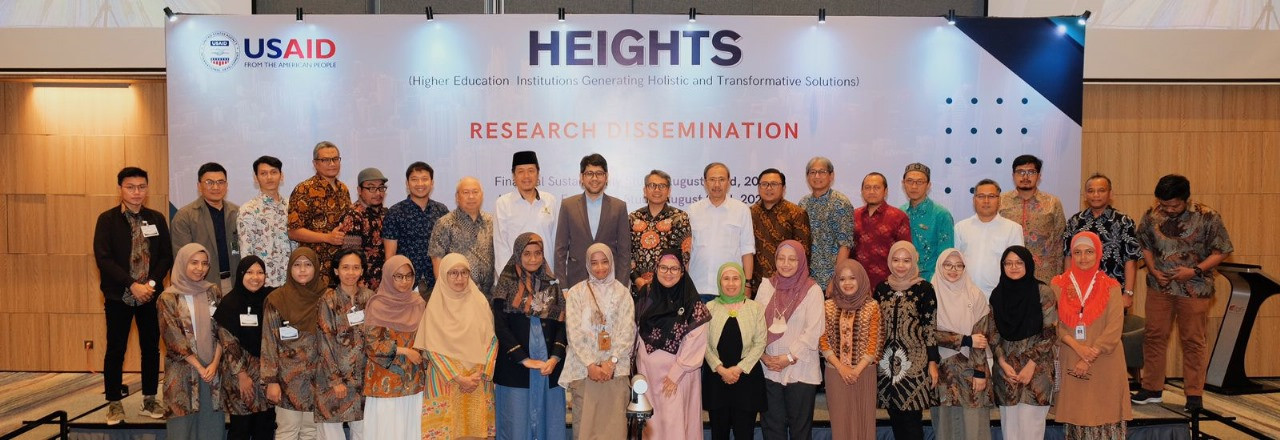
In an effort to identify and encourage holistic agricultural innovation in Indonesia, SMART CITY Universitas Indonesia (UI) collaboratively conducted a research project with the University of Notre Dame and USAID. This is originally a sub-project of SHARE (Supporting Holistic Actionable Research in Education) that is known as HEIGHTS (Higher Education Institutions Generating Holistic and Transformative Solutions). This research focuses on exploring the role of Higher Education Institutions (HEIs) in creating a dynamic agricultural innovation ecosystem in West Java. This research project is initially divided into three phases, and is now in its final phase. In Phase 1, which was carried out for approximately three months from February to May 2022, the literature review and the identification of key stakeholders were conducted. This was then followed by the Phase 2, which was the workshop using systems thinking and actor mapping methods organised in August 2022.
To publicly share the research findings that have been achieved to date and further collect additional inputs from various related stakeholders, SMART CITY UI held a research dissemination event at the Aloft TB Simatupang Hotel, South Jakarta, on August 23, 2023 . This event was attended by 29 participants who are directors, leaders and innovation directorates and departments, as well as lecturers, researchers, and innovators at HEIs, that are sampled in previous research phase, such as the Bogor Agricultural Institute (IPB), Pasundan University (UNPAS), Padjadjaran University (UNPAD) and other universities. The representatives from relevant government agencies such as the Ministry of Education and Culture, Research and Technology, the National Research and Innovation Agency, and the National Planning and Development Agency were also invited and attended this research dissemination event.
The event officially opened with remarks from the Director of the HEIGHTS Indonesia Program, Prof. Dr. Heri Hermansyah, S.T., M.Eng., IPU., and Dr. Donald Tambunan, as a representative from USAID Mission Indonesia. Both provide insights about the project goals and the importance of synergy in innovation and education. Prof. Hermansyah, who also serves as Dean of Faculty of Engineering Universitas Indonesia and SMART CITY UI Advisor, expressed the importance of active involvement of HEIs in the agricultural innovation ecosystem in West Java as a fundamental pillar in implementing and realizing the transformation of the agricultural sector. "The research findings illustrates the extraordinary potential of this collaboration to create sustainable and revolutionary solutions. We hope that these findings will become a basis for further steps in strengthening synergies between educational institutions and related parties in the agricultural sector to create agriculture ecosystem in Indonesia more sustainable and innovative," said Prof. Hermansyah.
Ahmad Gamal, S.Ars, M.Si, M.UP, Ph.D., who serves as the Head Research Team of the HEIGHTS Indonesia Project and SMART CITY UI Advisor, also explained the outline of the research phases and its prominent findings. Dr. Gamal emphasized that the main goal of this research is to encourage deeper innovation, creating space for the growth of educated individuals. "Innovation should be a means for users to understand new methods, by this, they have skills that are relevant to the real world," said Dr. Gamal.
The Plt. Director of Research and Innovation Partnerships at the National Research and Innovation Agency (BRIN), Dr. Muhammad Amin, S.T., M.Si., also attended the event. In his presentation, Dr. Amin emphasized the government's support for HEIs to be involved in the innovation ecosystem with a focus on the agricultural sector. "Agriculture is a national priority sector. There are several regulations that support research and innovation, one of which is tax deduction. BRIN also has programs for developing Human Resources to increase global competitiveness, one of which is through the talent scouting program," shared Dr. Amin.
From the constructive discussions with all participants in the event, SMART CITY UI received and collected additional feedbacks and insights regarding the the key findings that had been previously discovered by the research team in the previous research phases through the conducted interviews and Focus Group Discussions. In the future, SMART CITY UI expects that the research findings can be used as a reference to strengthen collaborative synergies between HEIs and agricultural sector, as well as stimulate the growth of an increasingly resilient agricultural innovation ecosystem in the West Java.
Smart City Universitas Indonesia
Smartcity.ui.ac.id

